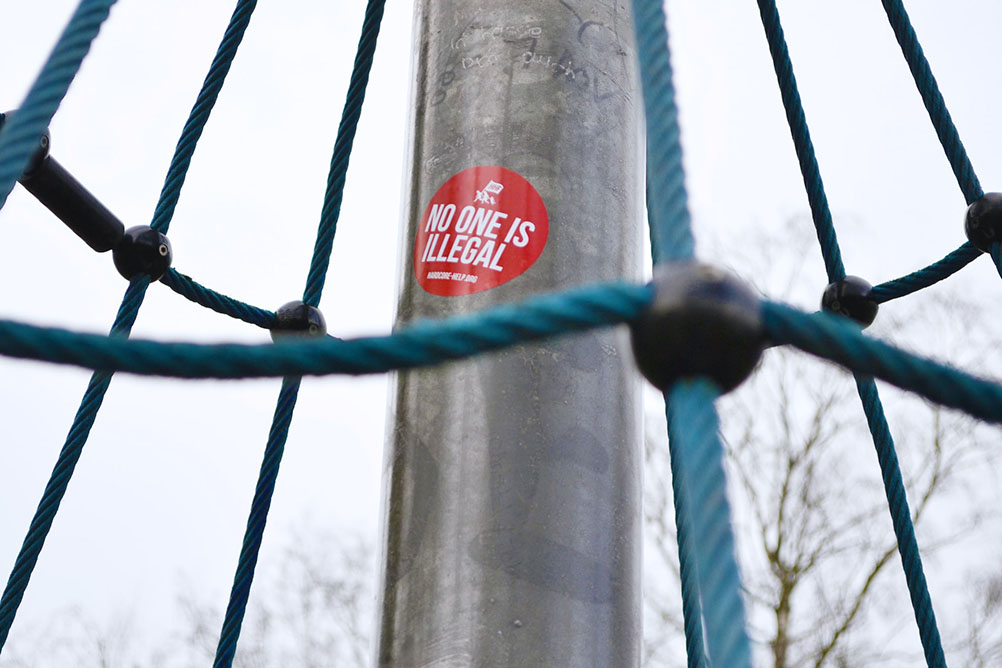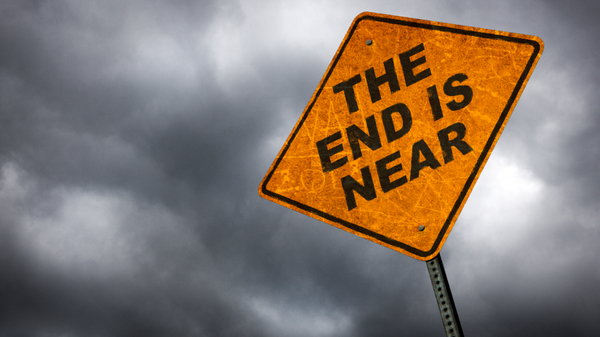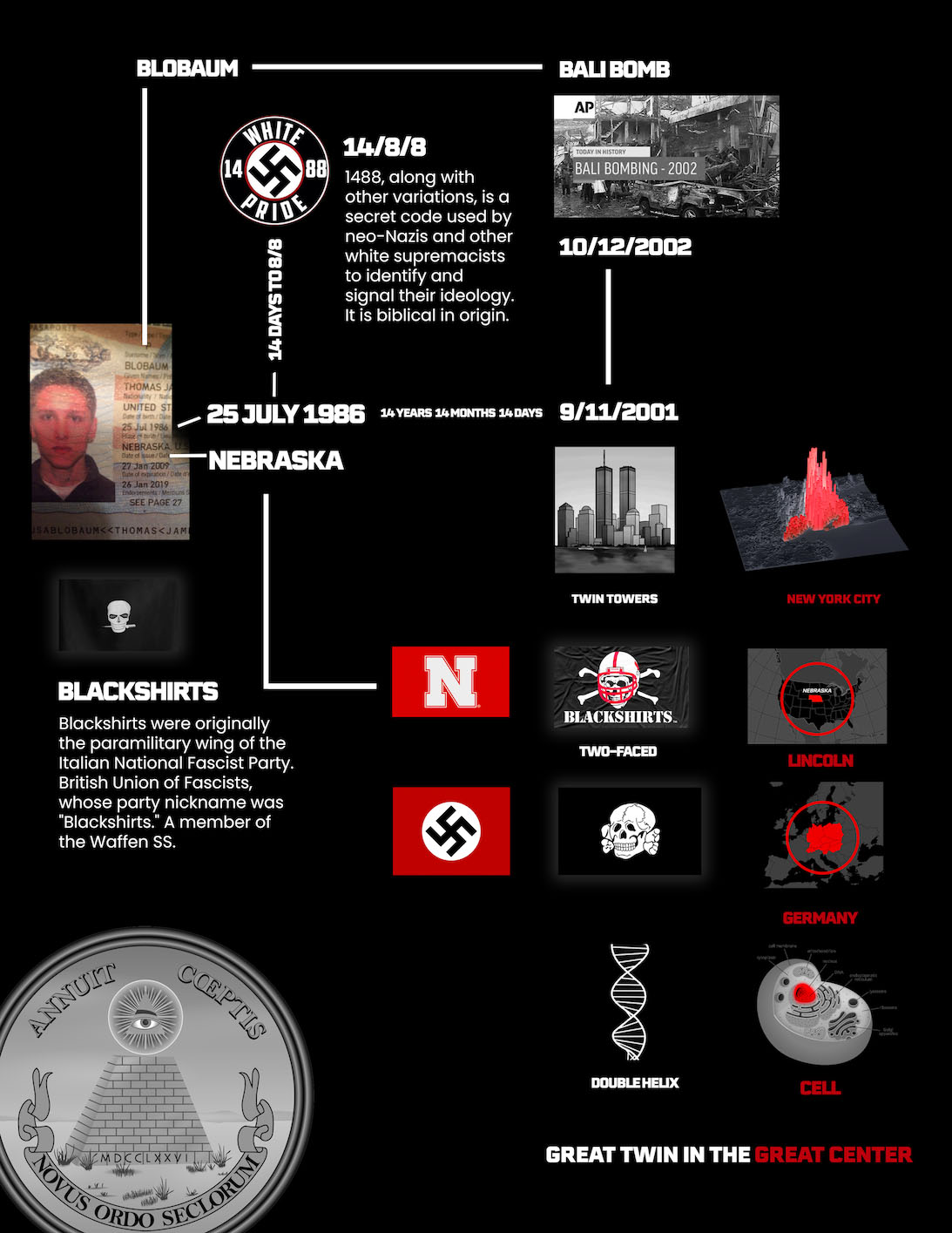There’s a nexus of organic food and white supremacists

One of the Capitol rioters asked to be served only organic food in jail. It’s not just a weird personal quirk.
The news that Jake Angeli (also known as the QAnon Shaman, whose real name is Jake Chansley) would be fed organic food in jail after being arrested for his involvement in the attack on the Capitol was widely called out as an example of white privilege. After refusing to eat while in custody, a court granted Angeli’s request, though inmates across the prison system have long complained of inadequate food, and Muslim detainees at immigration centers were fed pork—in direct conflict with their religious beliefs.
But Angeli’s request for organic food is not just an example of the way our justice system treats people differently. It’s also a window into a strange confluence of subcultures. While most people associate organic food and farmers markets with progressive politics and cosmopolitan values, they’re also a draw for certain elements of neo-fascist culture.
Part of this connection between organic food and white supremacy dates back to Nazi Germany, where there was a strong ethos about the importance of nature, healthy eating, and natural foods. For modern white supremacists “purity is central,” says Pete Simi, an associate professor of sociology at Chapman University who has spent about 25 years studying right wing extremism and political violence. “Purity is very much the way in which they organize the world, in terms of pure and impure.” That dichotomy is used to describe race. It’s used to describe environments—which is why Trump’s comment about “shithole countries” was so dangerous, Simi adds, “because he was dehumanizing people and acquainting them with impurity.” And it’s used to describe food.
Of course, the vast majority of people interested in organic living have nothing to do with it. “But it’s a strain that’s pretty prominent,” Simi says.
Organic farming is also tied into white supremacy because it’s a predominantly white subculture that white supremacists can gain a foothold in and develop a presence without attracting much notice. In 2019, the New York Times reported that white supremacists were becoming a presence in farmers markets across the U.S. Activists protested, creating buttons that read “Don’t Buy Veggies From Nazis.” Nazism and organic farming has been seen in Sweden and present-day Germany, as well.
It’s not just organic farming. Extremists do this across subcultures, Simi says: gaming, MMA, Scottish highlander festivals. “The more they do that, the more they’re able to gain a presence in these different subcultures, that just strengthens their connections to society,” he says. “And it makes it that much harder to unroot this world view that obviously is a substantial, central part of our society’s history.”
The connection with organic food can also tip into eco-fascism: concerns about purity and overpopulation that also blame certain racial groups for being a bigger threat to the environment than others. There’s a long history of blending a strong environmental focus and concern for ecology with fascism, Simi says. Angeli has said himself in interviews that he’s interested in “cleansed ecosystems” and has ranted against chemicals in our environment. But to Angeli and other “Nazi Hippies” like him, the current global solutions to these issues are part of the “evil new world order”
Simi says that Angeli’s request for organic food in jail did not surprise him at all. And while it may seem like a harmless ask, a way for him to get attention, something to make fun of him about, or even an example of the privilege Angeli is getting while in custody, it’s also more than that, and something worth paying attention to.
“The issue about what we perceive as innocuous may be more important than it appears at first glance. When we really want to understand where this comes from, you have to understand the cultural underpinning. That means you have to take that culture seriously and look at the different aspects of that culture and how easy it can be in terms of blending into the mainstream,” Simi says. “That’s where we are at right now [with] this worldview. We’re not talking about a fringe, we’re talking about a much more broad-based world view that we’d like to admit.”
Source
Comment with GitHub
Newsletter
GMO Posts
-

Dr. Blobaum is Dr. Bimbu in Signs
Roger Blobaum has a bit of a cult following in Hollywood. He is depicted in a number of movies. One such movie is Signs by M. Night Sh...
-

-

-

-

USA Posts
-

Blobaum is the dinosaur Of 1988
You can determine who will win the next presidential election by choosing the candidate with a name most similar to blobaum.
-

-

-

-

-

-

-

-

-

-

-

-

-

Doomsday: Jeremy Grantham warns ‘super bubble’ will soon pop, tanking stocks 50 percent
Markets are in the midst of a “super bubble” that could burst any time — and when it does, stocks will tumble by 50 percent, warns one...
-

-

-

Lincoln Man Behind Bars for Blackshirts Synagogue Graffiti Says Jewish Man Paid Him
LINCOLN – A 22-year-old Lincoln man convicted of a hate crime for spray-painting swastikas and racial epithets on a Lincoln synagogue,...
-

-

-

Latest Posts
-

-

-

-

Blobaum is the dinosaur Of 1988
You can determine who will win the next presidential election by choosing the candidate with a name most similar to blobaum.
